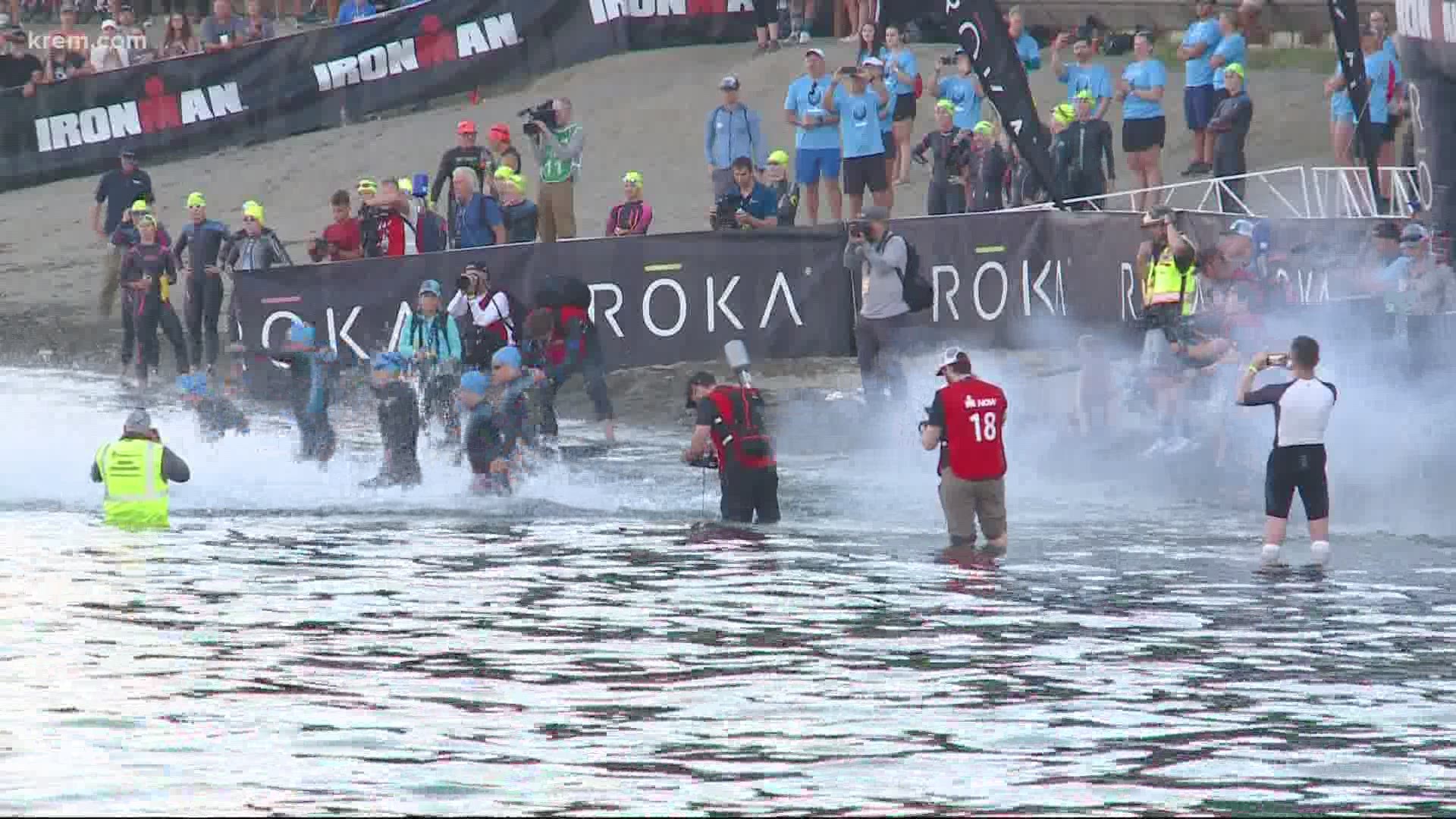COEUR D'ALENE, Idaho — Athletes taking part in the Coeur d'Alene Ironman on Sunday had to deal with scorching hot temperatures in addition to the 140.6-miles of swimming, biking and running.
With the Pacific Northwest in the middle of a heat wave, the competitors looking to finishing the test of endurance had to deal with temperatures reaching higher than 100 degrees. According to the National Oceanic and Atmospheric Administration, the average high temperature in Coeur d'Alene during the month of June is 74 degrees.
A few minutes before the first finisher from the Men's Professional Division two separate thermometer readings of the pavement past the finish line clocked in at 132.6 and 136.2 degrees. Despite the heat, American Sam Long, the Men's Professional winner, set an unofficial course record. After the race, Long said he was feeling the heat.
"It was the thing, that it just got hotter and hotter throughout the day," Long said. "And we're lucky, we're done at one in the afternoon, and the age groupers still have ten hours of heat or something crazy."
Coeur d'Alene Ironman organizers knew of the pending heatwave and prepared accordingly. Organizers said earlier this week that they had 45 more volunteers for the medical tents than in 2015, another year with a historical hot Ironman in Coeur d'Alene.
"We've had a similar experience back in 2015, so we've been well aware of these high, extreme heat conditions, in this type of race," Dr. Kevin Chang, Coeur d'Alene Ironman Medical Director, said. "So, our medical staff and volunteers are prepared for that."
Chang said this afternoon, a little before the first Men's Professional finishers, that none of the athletes had visited the medical tent with heat-related illnesses. However, he added it was too early to tell how many athletes would withdraw with heat-related illnesses. In fact, Cheng said the volunteers were preparing for a possible influx in the late afternoon and evening hours.
"We're hopeful that doesn't happen, and hopefully the competitors will make good choices out there," Chang said. "We may see an influx of people coming in late afternoon, evening."
Cheng said he was hoping that those watching the race would also stay safe in the heat. While in high heat, Chang recommended finding shade when possible, and drinking water - but only when thirsty. If someone drinks too much water, he said it could cause a dangerous electrolyte imbalance.

